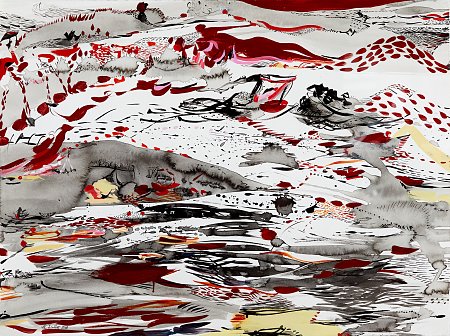
Unwanted Babies
She said that her father had insisted she have a liberal arts education. If she wanted to study art, she could go on to graduate school. That made me think her father didn’t believe that her talent was strong. If he had, he would not have suggested she waste her time learning about vectors and the invasion of the Normans. He would have made out a check to Rhode Island School of Design or Carnegie Tech, where my sister was signed into courses called Two-Dimensional Design, Sculpture, Intaglio & Lithography, and Welding. At Connecticut College, we had one course called Studio Art. We had one art teacher. We had one studio for all. My sister, on the other hand, could have a studio of her own if she won the studio lottery her senior year at Carnegie Tech, where Andy Warhol had studied. My sister was surrounded by others planning to have careers in art. Lily was surrounded by debutantes who enjoyed sketching.
All the same, I was fascinated by her. All beautiful women are fascinating. All beautiful anything is fascinating, even if it’s just a vase. Two things gave me a glimpse of Lily’s pre-trauma personality. One was her laugh, which was raucous and erupted easily. The other was that she defied conventional good manners and smoked outdoors. Back then ladies just didn’t do that. We smoked indoors. Lily, meanwhile, puffed unfiltered cigarettes as she strode across campus, forward-leaning and inward focused.
Her brother fixed her up one weekend, so we went to Wesleyan together and shared a room in a motel. That’s how we did it back when the schools were not coed. We girls traveled by train with freshly shaved legs and hair fragrant from shampoo, and the boys paid for the motel. When Lily and I undressed to get into our pajamas, I saw that Lily wore a full slip. It was what we used to call “flesh” colored. I’d never seen a young woman wear such an old-lady undergarment. We wore half-slips, pushup bras, and lacy panties. In her underwear, Lily looked like my idea of an Amish or Mennonite woman. For the first time, it occurred to me that she might not be as sexually experienced as having a baby would imply.
Toward the end of the year, she met Lou, a wealthy boy who struggled to live up to what others imagined was his potential. He was five years her senior and lived in Cambridge, where he was forever planning to apply to Brandeis. He was sure to get in, because his father had donated one of the buildings there. His father owned Gorham Technologies. Lou had grown up in a penthouse on Fifth Avenue across from Central Park. He once said, “Opportunity keeps knocking. It’s banging on my door! Shut up, Opportunity! Just shut up and go away!” Another time he wrapped a Baby Ruth candy bar in a piece of Kleenex and held it toward me on his flat palm. “Look,” he said in a shamed way. “Look what I did.” He unwrapped the Kleenex to show me what looked like a turd in his palm. Lily erupted in her guffaw.
By the time I was a senior, Lily still hadn’t told me her secret. After graduation, I’d probably never see her again. One day, however, she came into my room when I was packing up my books, trying to meet the deadline for vacating the dorm. “I want to tell you something,” she said as she sat on the bed. And she told me that she had gotten pregnant in high school.
I wanted to say, “I know.” But instead I looked up from a carton marked “books,” where Paradise Lost was on top of Return of the Native. I said, “Did it hurt?”
“Yes. They took her away.”
I was strangely detached from the longing and regret in her response. “No. I mean did it hurt when she came out?”
“You mean does childbirth hurt?”
“Yes.”
